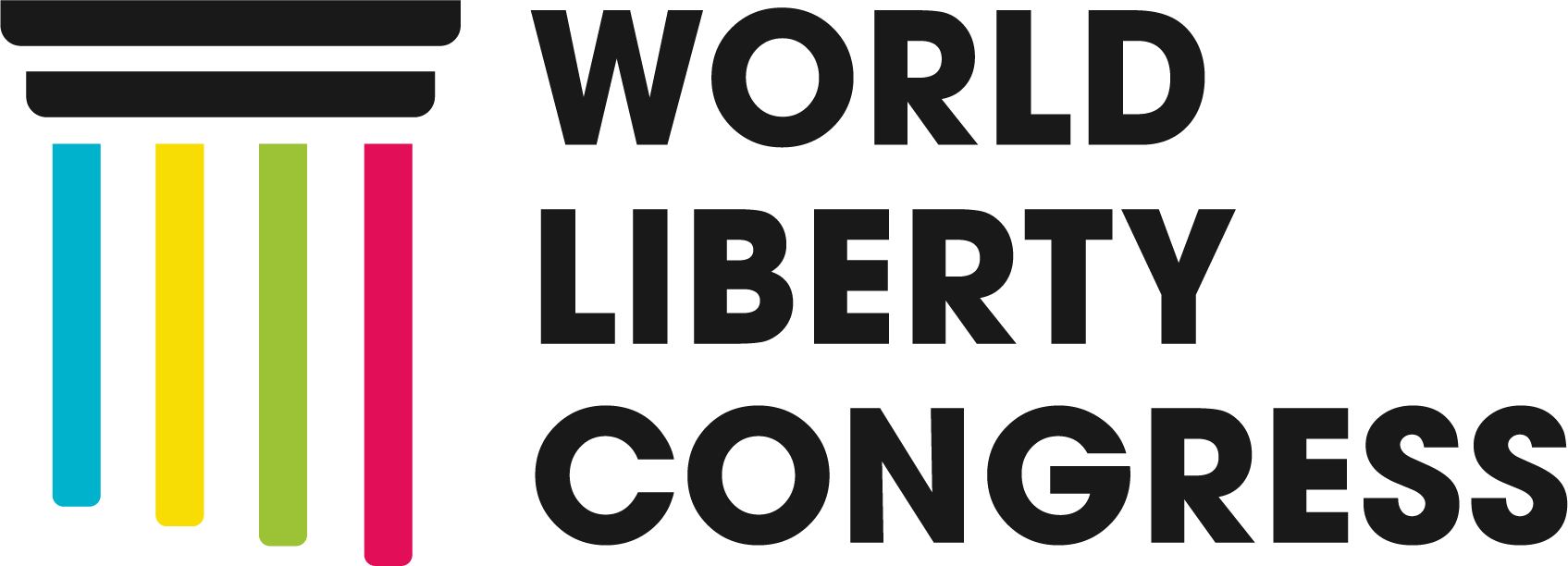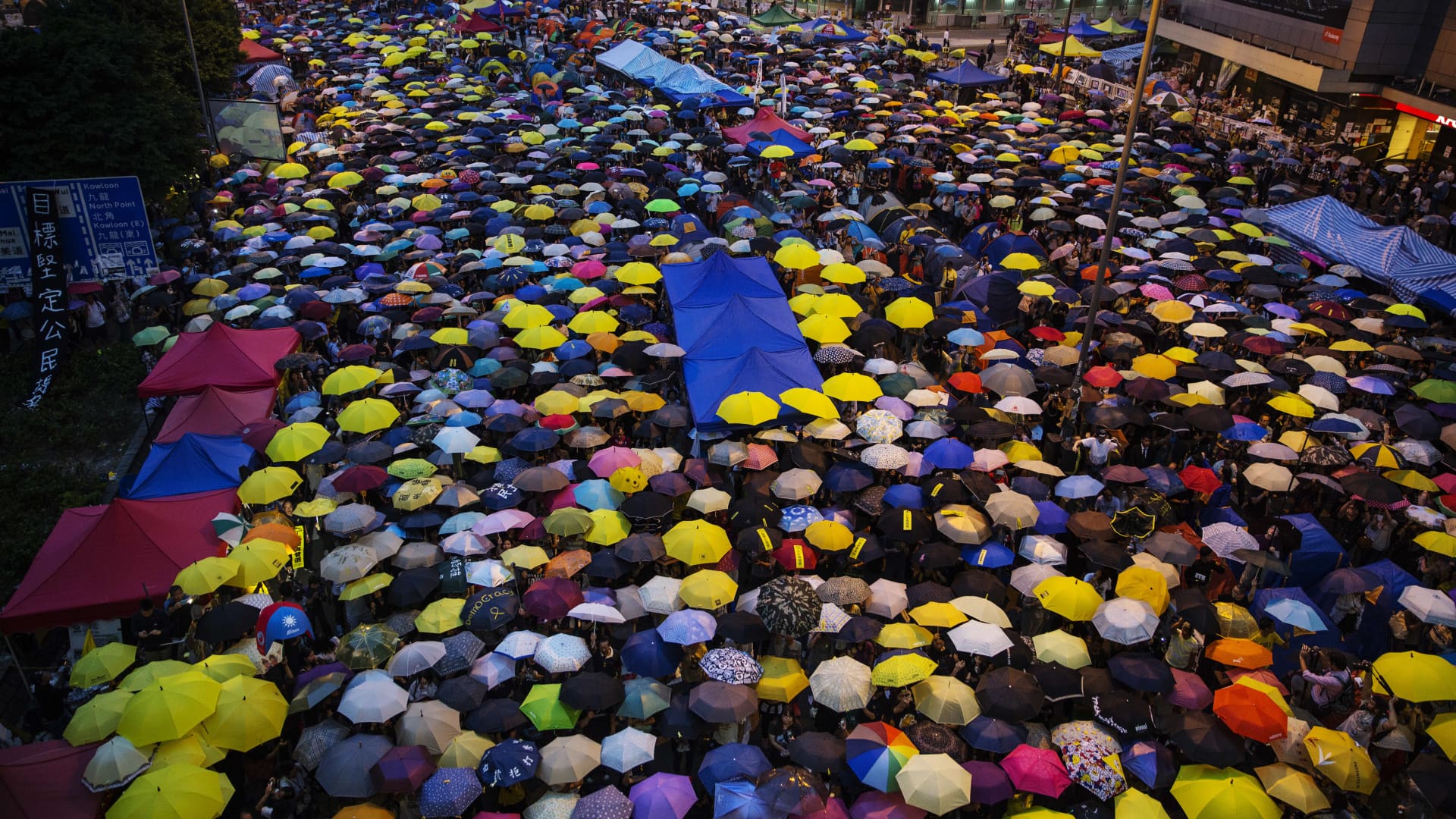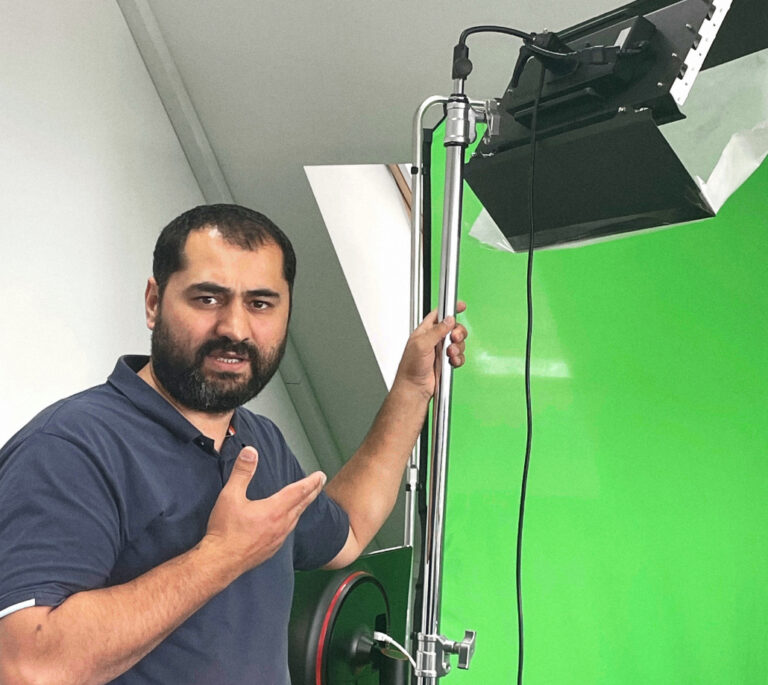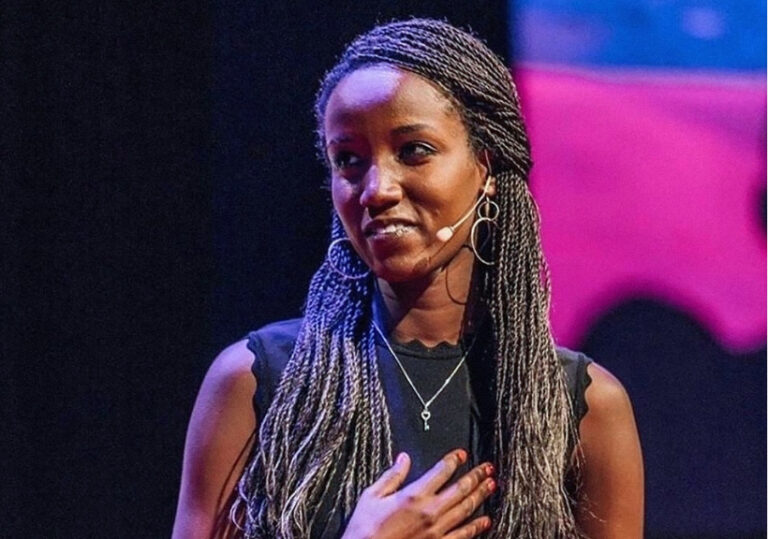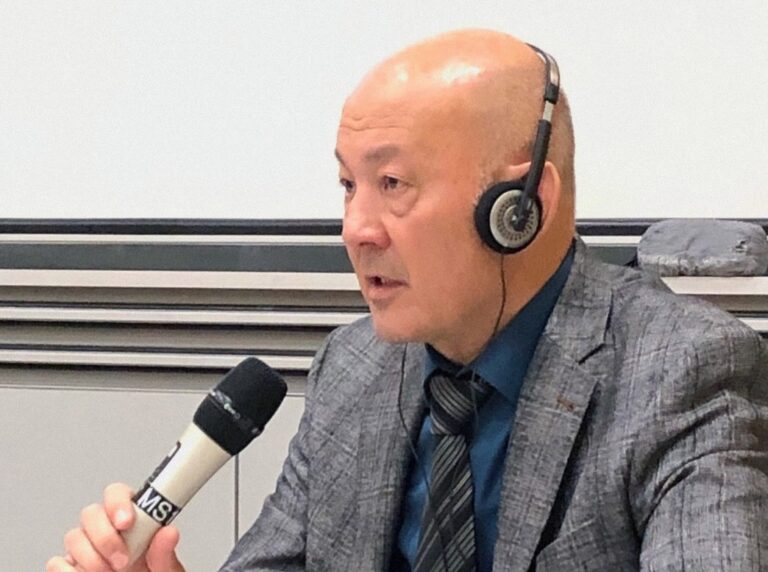by Félix Maradiaga (elected WLC Leadership Council member)
This week marks the tenth anniversary of Hong Kong’s Umbrella Movement, a moment that shaped the city’s modern identity and its defiance against authoritarian control. For 79 days, from September 28 to December 15, 2014, thousands of brave Hongkongers took to the streets, demanding universal suffrage and democratic governance. Protesters wielded yellow umbrellas to shield themselves from police tear gas and pepper spray, transforming the umbrellas into a global symbol of peaceful resistance. Yet, the movement was not just about electoral reform—it was a cry for the preservation of freedoms guaranteed under Hong Kong’s Basic Law but steadily eroded by Beijing.
Since the 1997 handover from Britain to China, Hongkongers have witnessed a slow but persistent encroachment by Beijing, erasing the “one country, two systems” principle promised to them. The Umbrella Movement was a response to that encroachment, a demand for “genuine universal suffrage,” and an end to Beijing’s grip on the election of Hong Kong’s chief executive. The 2014 protests exposed deep societal fractures, igniting a struggle that continues to this day.
One of the leaders who emerged from this battle is Joey Siu, a student activist from Hong Kong, now based in Washington, D.C., after being forced into exile in late 2020. In a recent interview with the Human Rights Foundation, Joey reflected on her activism and the bounty Hong Kong authorities placed on her head: “On Dec. 13, I woke up to the news that HK authorities issued an arrest warrant and a $1 million HK bounty on me. Ever since I fled, I knew this could happen… But this bounty is like a death certification — I can really never go back.” Despite the threats, Joey remains steadfast, continuing her advocacy from abroad, undeterred by the regime’s efforts to silence her.
Joey’s story mirrors the experiences of many who have dared to challenge the Chinese Communist Party (CCP). The movement that began in 2014 has since evolved into a broader call for freedom, as Beijing has tightened its grip on Hong Kong. The National Security Law, imposed in 2020, criminalized dissent and allowed authorities to crack down on activists, journalists, and lawmakers. In 2024, the passage of Article 23 further cemented Beijing’s control, leaving Hongkongers with even fewer civil liberties.
The Chinese regime’s tactics extend far beyond Hong Kong. As Joey pointed out, “Over the past few years, the CCP and the HK authorities have stepped up their transnational repression… They’ve set up secret police stations all across the world, including in the United States, to silence us.” This transnational repression targets not only Hongkongers but also Uyghurs, Tibetans, and other dissidents who challenge China’s authoritarian rule. The CCP’s reach has become global, and democratic countries must confront these threats to their own citizens and values.
The international community must act. As the struggle in Hong Kong continues, there is a moral imperative to support those fighting for their rights against an increasingly authoritarian regime. The World Liberty Congress (WLC) has called for independent investigations into police brutality, and human rights organizations worldwide have demanded that Beijing respect the autonomy it once promised. If democracies do not stand up for Hong Kong now, they risk allowing authoritarianism to spread unchecked.
Frances Hui, another student activist and advocate for Hong Kong, captured the essence of the city’s identity crisis when she said, “I am from a city owned by a country that I don’t belong to.” This sentiment reflects the growing disconnection that many Hongkongers feel toward mainland China. A 2018 poll found that 40 percent of citizens identify as “Hongkongers,” while only 15 percent identify as Chinese. For younger generations, that gap is even wider, with fewer than 4 percent of those aged 18 to 29 seeing themselves as Chinese.
The yellow umbrellas may no longer fill the streets, but the spirit of the Umbrella Movement lives on. The fight for Hong Kong’s future is far from over, and the courage of those who continue to resist—like Joey Siu and Frances Hui—serves as a reminder of the global struggle for freedom. On this tenth anniversary, we are called to remember that democracy is fragile and that the world must not look away as Hongkongers continue their fight against tyranny. Their struggle is a testament to the power of hope, and it deserves our unwavering support.
